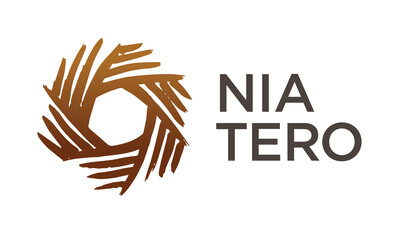NT-2024-AR - Flipbook - Page 25

OUR WORK
Policy
Nature House Event at COP16 | Colombia, Amazonia
Nancy Kelsey (Anishinaabe)
With the primary goal of advancing global policies that establish
and enhance Indigenous Peoples' guardianship rights and
sovereignty, Nia Tero revised its policy strategies in 2024.
Updated plans include connecting national-level policy with international efforts
to highlight opportunities to implement global agreements. The strategy also
includes efforts to strengthen Indigenous Peoples’ participation in international
forums. Finally, the plan enhances policymakers' and influencers' understanding
of issues affecting Indigenous Peoples by regularly monitoring the potential
impact of global regulations.
Highlights
At the World Intellectual Property
Organization (WIPO), a specialized agency
of the U.N., the Indigenous Caucus at
the Diplomatic Conference on Genetic
Resources and Associated Traditional
Knowledge (GRTK) successfully negotiated
the adoption of a new treaty that requires
patent applicants across the globe to
disclose the origin of genetic resources
or traditional knowledge used in their
creations. The historic GRTK Treaty is the
first WIPO Treaty to require Indigenous
Peoples’ involvement in issues in the nexus
of intellectual property, genetic resources
and traditional knowledge.
During the U.N. Convention on Biological
Diversity’s COP16 in Cali, Colombia,
Nia Tero supported several partner
organizations' attendance and held
trainings to strengthen their participation
before the conference. A landmark
subsidiary body was established at COP16,
prioritizing Indigenous Peoples’ traditional
knowledge and practices. Under Article 8(j)
of the Convention and in several targets of
the Kunming-Montreal Global Biodiversity
Framework, parties must respect, preserve,
and maintain knowledge, innovations, and
practices of Indigenous Peoples and local
communities.
Indigenous
48 Peoples and the Just Transition Conference before the 2024 UNPFII
Lenapehoking, North America | Linda Dutan (Cañari)
Nia Tero
Paul Roughan, Peter Seligmann, and 'Aulani Wilhelm during
Climate Week | Lenapehoking, North America | Goals House
Annual Report 2024
The International Indigenous Forum on
Biodiversity (IIFB), a grantee of Nia Tero’s,
played a key role in the negotiations that
led to the adoption of a new program of
work and the establishment of a permanent
subsidiary body to support Indigenous
Peoples. Nia Tero also co-sponsored
the TRɄA World Summit on Traditional
Knowledge related to biodiversity to prepare
for COP16, and supported the IIFB-led
training to strengthen their participation
before the conference.
In preparation for COP29 global U.N.
Climate Change negotiations, six free
virtual training sessions catering to
Indigenous leaders were conducted by
Nia Tero, the U.N. Voluntary Fund for
Indigenous Peoples, Docip – Indigenous
Peoples' Center for Documentation,
Research and Information, the U.N.
Development Programme, and other
Indigenous rights organizations. These
trainings were provided in English, French,
Spanish, and Portuguese and were
designed to prepare Indigenous Peoples
for engagement in global policy discussions
affected by climate change. A total of 616
people participated and were trained to
advocate for their rights, share traditional
knowledge, and effectively participate in
the U.N. Framework Convention on Climate
Change and related processes to influence
climate policies.
49